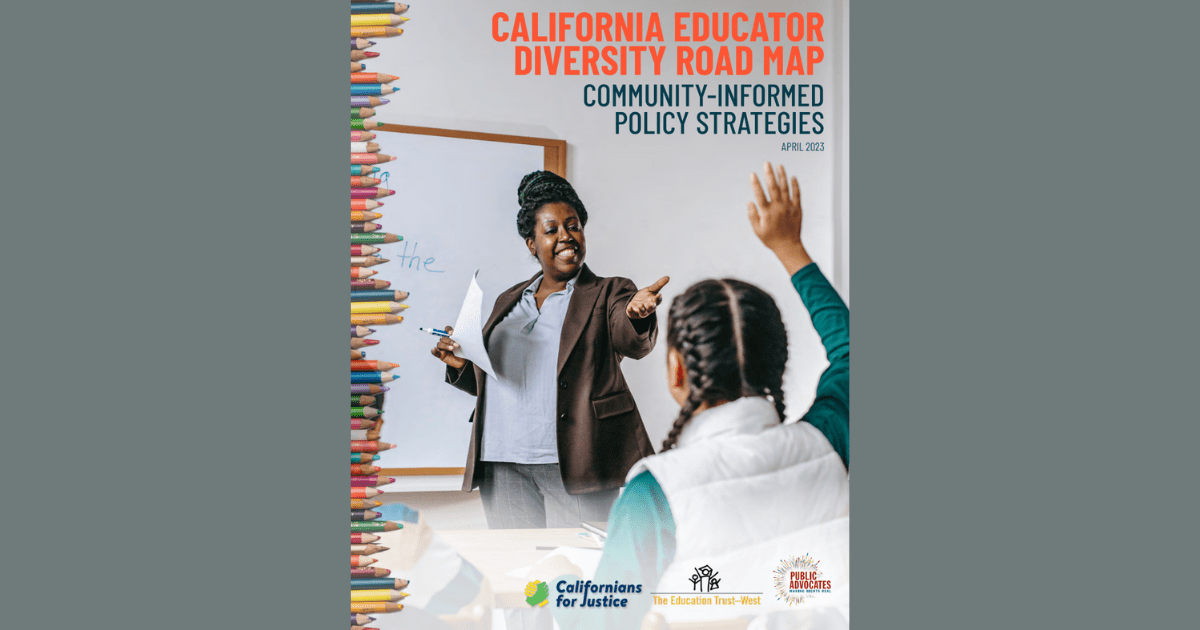Research shows that students derive both social-emotional and academic benefits from a diverse educator workforce. The state has taken notable steps to prioritize a more diverse educator workforce in recent years. These include:
- convening a California Department of Education (CDE) Educator Diversity Advisory Group, tasked with offering recommendations on recruiting and retaining greater numbers of educators of diverse backgrounds;
- establishing coursework alternatives to standardized tests that have historically served as a barrier to access for candidates of diverse backgrounds who want to enter the teaching profession; and
- making significant investments in teacher residencies and financial supports for teacher candidates.
Nonetheless, the state has not yet established a clear vision and comprehensive action plan to recruit, prepare, and sustain an educator workforce whose diversity reflects that of California’s students.
To help set a statewide agenda, Californians for Justice (CFJ), The Education Trust–West (ETW), and Public Advocates (PA) partnered to develop a community-informed educator diversity road map. We reviewed research about educator diversity, including the recommendations issued by the CDE Educator Diversity Advisory Group, and compiled a list of proposals for the state on how to recruit, prepare, and retain educators of diverse backgrounds. Next, we recruited students, parents, educators, and administrators to participate in focus groups to discuss these proposals and offer insight and feedback. Although the focus group participants, particularly students, highlighted the need for and importance of an educator workforce that reflects the myriad identities that students hold, the primary foci of their input, and thus of this road map, were about how to recruit and retain more educators of color and multilingual educators. In addition, we use the term “educator” to primarily focus on teachers but also include school leaders, classified staff, and other adults who work with students in our public schools.
After conducting focus groups and reviewing community feedback, we distilled six key recommendations that emerged from our conversations and offer several ways that the state, LEAs, and schools may implement these recommendations.




